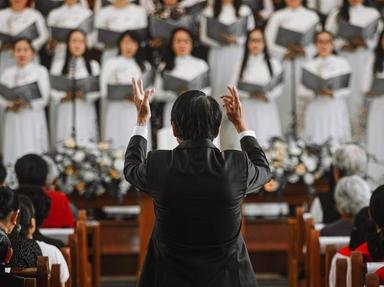Quiz Answer Key and Fun Facts
1. According to Nethymnal.org, the oldest hymn for which we know the author is 'Shepherd of Tender Youth', written by Clement of Alexandria, circa 200. In what country is Alexandria?
2. According to Nethymnal.org, Fanny Crosby is the most prolific hymn writer with more than 8,000 titles to her name. However, according to the Website, who is the second most prolific writer, credited with penning at least 6,000 titles? (Hint: He had a famous brother.)
3. A hymn written by Fanny Crosby was surprisingly sung in Oscar winning movies in back-to-back years -- 'Places in the Heart' in 1984 and 'Trip to Bountiful' in 1985. What is the title of the hymn?
4. Out of the secular tunes listed below, which one is also featured in an old-time hymn?
5. According to Nethymnal.org, what old-time hymn is rated the most popular, as per traffic on the American-based Website?
6. What hymn was sung at both the wedding and the funeral of Princess Diana?
7. According to Nethymnal.org, what was the first hymn in English written for public worship? (Hint: it was written by Isaac Watts, circa 1688.)
8. What hymn writer and composer, according to the Guinness Book of Records, held the record at his death in 2013 for singing live to more people than any other musician in history?
9. An ever popular children's hymn first appeared in a novel 'Say and Seal' in 1860. What is the title of the hymn?
10. Out of the four choices below, what hymn was written by a non-Christian?
Source: Author
Cowrofl
This quiz was reviewed by FunTrivia editor
agony before going online.
Any errors found in FunTrivia content are routinely corrected through our feedback system.
